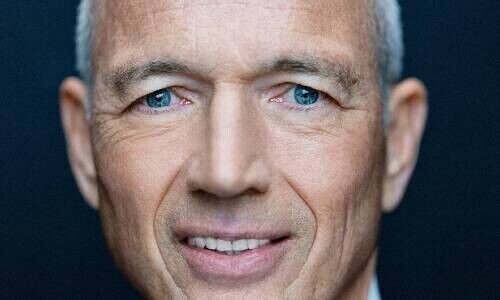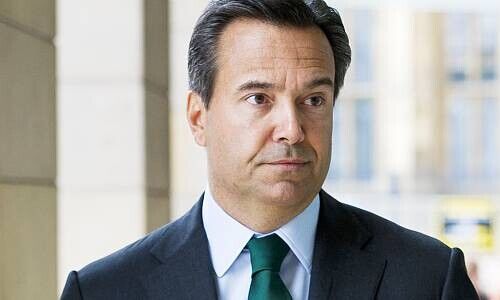António Horta-Osório's Unfinished Swiss Legacy
António Horta-Osório departs Credit Suisse a strategy that leaves a lot open. His successor at the Swiss bank, Axel Lehmann, has to deal with it.
The strategy was urgent for António Horta-Osório, who in November presented Credit Suisse's new set-up at an investor event in London without being able to fill in the blanks on the Zurich-based bank's flagship wealth division yet.
In hindsight, the urgency was almost prophetic: the Portuguese-British was ousted as chairman on Monday, in the wake of an investigation into his conduct and travel during COVID.
The two-year plan for the scandal-roiled bank falls to his successor, effective immediately, Axel Lehmann (pictured below). The Swiss banker enters midway through the strategy as well as all the potential personnel consequences of it.
Conviction Alone Not Enough

A u-turn is unthinkable, given Credit Suisse's battered investors, as the new chairman hinted on Monday. «I am convinced that Credit Suisse will demonstrate the renewed strength and business focus needed to generate sustainable value for all of our stakeholders,» he said on Monday.
The conviction alone doesn't do it. The new strategy, which ex-Chairman Horta-Osório began crafting together with consultants last April, transfers more capital into managing money for the world's wealthy and bundles global divisions with regional activities into a matrix. This can be incredibly complex in practice and according to «Reuters» has led to a divide.
Most recently, Credit Suisse retooled its corporate and capital market business. Over in wealth management, some regional functions are still vacant.
Occupied With Itself
It will take some time for the new structure to gel. Reorganizations are notorious for occupying companies' focus for months at a time. Credit Suisse is also unfortunate in that the revamp is likely to be disturbed by a host of other issues. Specifically, its own investigation into Greensill is due, it awaits another by its chief regulator (Switzerland's Finma) into the same topic as well as into Archegos.
Greensill, the now-defunct supply chain specialist, led to several high-profile departures last month and might prove perilous for CEO Thomas Gottstein, under whose leadership the episode played out.
A New «Mr. Zero-Tolerance»?
Horta-Osório wanted to not just give Credit Suisse a new set-up, but to fundamentally redefine its risk-taking as well as further out, its culture. The zero-tolerance stance was practically his from the moment he stepped into the job as emergency cleaner-upper. He stumbled over his own careless handling of COVID rules in Britain and in Switzerland.
His successor, Lehmann, is a risk specialist who was last year enlisted by Horta-Osório for precisely this experience. It remains to be seen whether Lehmann can or wants to become «Mr. Zero Tolerance». Credit Suisse undoubtedly has a problem with its managing risks, and improvement will be demanded by investors as well. The Swiss native has little leeway to maneuver.
Advocate For Independence
Meanwhile, the sudden departure of Horta-Osório demonstrates how things at Credit Suisse can change literally overnight.
The former chairman attempted to tackle a lot but remains steadfast in one matter: a merger with another bank is out of the question. Now that this advocate for Credit Suisse's independence is gone, the strategic option is no longer in the background – and lends the new chairman a few more options in the mid-term.





















